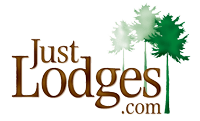Buying a Holiday Lodge – 10 Key Things to Know
Published: 4th February, 2025
.png)
Thinking of buying a holiday lodge?
If you’re reading this, chances are you’re seriously considering (or already in the process of) buying your dream holiday lodge. That’s exciting! But before you take the plunge, there are a few important things to keep in mind to make sure everything goes smoothly.
Here are 10 key things to consider before you sign on the dotted line:
